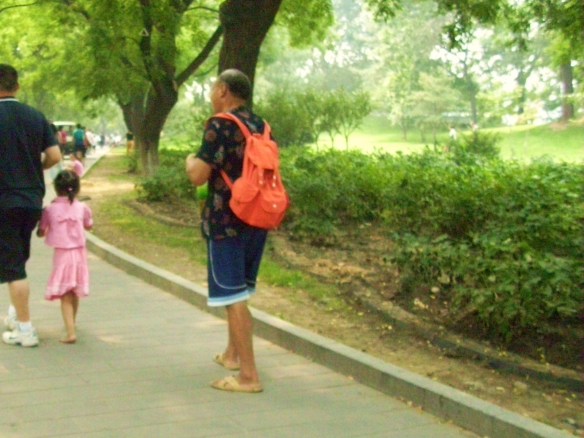Soon it will be Christmas!! Yes, in Chinawe have Christmas. Though we don’t celebrate it the same way as yours, we celebrate Christmas like every other western festival imported to China– we eat and get together with friends, after work.
Although I cannot shake the idea that I’m going to have one extra day off on Christmas, it’s better to introduce to you some traditional Chinese festivals first.
Spring Festival — This is the most important festival for Chinese, and probably you have already heard of it on news before. Basically it’s the lunar New Year and every family get together at the New Year eve waiting for a brand new start to begin. It’s a 15 days of firework, by the night of the Lantern Festival (15th day of the 1st lunar month), spring festival is officially over and everyone goes back to work. In 2012 the lunar New Year will begin on January 23rd. It’s impossible to write down all the details in one post, but I’m thinking I will give you daily-posting from the day Chinese begin to prepare for this big festival!
Dragon Boat Festival (the 5th day of the 5th lunar month) – It’s a festival commemorating the ancient poet Qu Yuan. Chinese celebrate this day by eating a traditional food – Zong Zi. One of my friends has told me about his first time dealing with Zong Zi: “Aw…It’s sticky!” There are dragon boat competitions in southernChina which represents the way people search for QuYuan when he committed suicide in 278 BC.
Tomb-sweeping Day (usually around 5th day of 4th lunar month)– On this day, Chinese go visit their relatives who passed away by cleaning their tombs and putting fruits and food beside the tombs (in this way those who passed away can have a nice meal in the other world). Amazingly, it is always raining on this day, it’s like the tears from the above world.
Mid-autumn Festival (15th day of the 8th lunar month) – It is said the moon is the roundest at this time of the year. Round shaped is always standing for something fully fulfilled and perfect. Family members get together and share moon cakes (which are also round shaped).
Besides all the traditional ones, Chinese also celebrate the Christmas, New Year (Of course!), Valentine, Thanksgiving, Halloween, Mother’s Day, Father’s Day.. Sometimes when it gets so real that I can even have a day off on Christmas! You might ask what’s my plan on this day, well, I will treat it like every other Sunday in this year, but thanks to the Christmas discount I might go shopping!
Western festivals became so popular since early 2000s, retailing companies introduced them to Chinese when people have extra money to spend on things other than necessities. Honestly speaking, most western festivals equal to shopping festivals to Chinese (while at the same time, you can also find out people in church who really believe in Christmas spirit). Friends get together after work and have dinner together then they spend some time together.
But as more and more Chinese begin to pursue a work-life balance, I believe there’s still huge potential for further development with more and more festivals being introduced to Chinese. On the other side, Chinese, especially those aged between 18 and 30, show a great interest in and positive attitude towards Western festivals. I believe it won’t take long till Chinese begin to appreciate the meaning of western festivals other than just consider them as shopping discount day.






